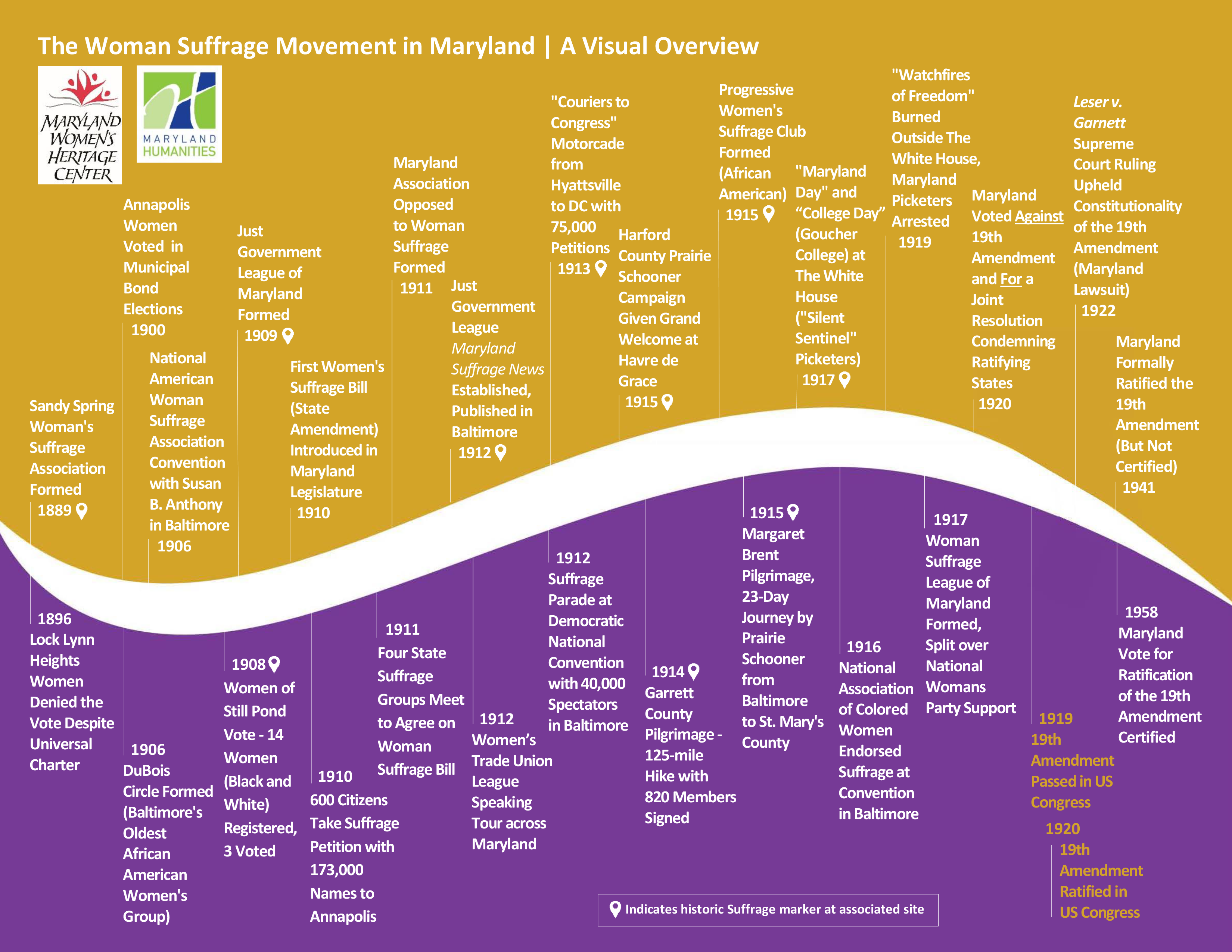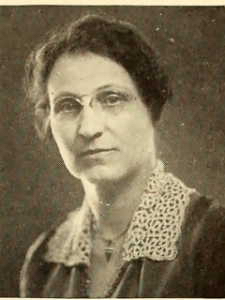
By Jean Baker, Maryland Women’s Heritage Center
Founder of Maryland’s College Suffrage League
Annie Heloise Abel (1873 – 1947)
Annie Heloise Abel was born in Sussex, England in 1873 and emigrated to the United States when she was twelve. Her father had been a gardener in England. The family settled in Salina, Kansas, where she graduated from high school.
After teaching two years in a nearby school, she attended the University of Kansas, graduating in 1898 Phi Beta Kappa. After again teaching for a few years in order to make money for her graduate studies, Abel completed her doctorate at Yale. Among the first cohort of women to earn doctorates in history, she focused her historical interest and writing on Native Americans and soon became well-known for her scholarship on American Indian history.
Goucher College years
In 1906, Abel began her tenure as an instructor at Baltimore’s Goucher College, rising to full professor and head of the history department in six years. It was there that she became involved with the suffrage movement.
At first an active participant in the Equal Suffrage League, Abel soon became the president of the Maryland branch of the College Suffrage League, one of the groups associated with the National American Woman’s Suffrage Association. As president she encouraged student understanding and participation in the suffrage movement at local colleges, including Johns Hopkins University, where she briefly taught. Known by her students as “Abel the Invincible,” she vigorously debated opponents of the movement. She held parlor talks on what in Maryland remained a controversial topic.
In 1913, Abel was responsible for organizing the Goucher contingent of 100 students who marched in Alice Paul’s National Woman’s Party parade in Washington, D.C. During that parade, police provided little protection for the marchers who were physically harassed by men in the crowd. At Goucher, she continued to supervise lectures including one by the suffrage superstar Inez Mulholland.
Further study and travels
In 1916, Abel left Goucher and took a position at Smith College in Massachusetts. Subsequently, she accepted a fellowship in Australia in order to study indigenous groups. There she was briefly married to George Henderson, a professor of English at Adelaide University. When she returned to the United States, Abel taught at several colleges and universities before retiring to the family home in Aberdeen, Washington. She died there in 1947.
Jean Baker is a Maryland Women’s Heritage Center volunteer and retired Bennett-Harwood professor of history at Goucher College. She is the author of 11 books, including Votes for Women and American Suffragists: Lives of the American Suffragists and Building America: The Live Life of Benjamin Henry Latrobe.
Sources:
Information and clippings from her niece Catherine Rao; Goucher College Archives, Abel Folder; Harry Kelsey, introduction to Arizona and the West, 1973; and Baltimore Sun.
See also Wikipedia sketch at https://en.wikipedia.org/wiki/Annie_Heloise_Abel.

